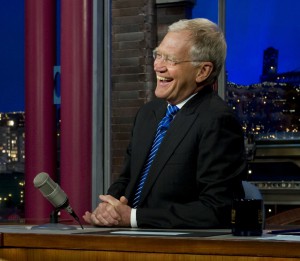 I didn’t realize I had become Letterman. As in David Letterman, the soon-to-retire host of the Late Show. I did, however, realize that I was tired all the time, and my well of ideas felt close to running dry. There was an uncomfortable air of desperation in my teaching.
I didn’t realize I had become Letterman. As in David Letterman, the soon-to-retire host of the Late Show. I did, however, realize that I was tired all the time, and my well of ideas felt close to running dry. There was an uncomfortable air of desperation in my teaching.
That’s when my vice principal revealed to me that I was working too hard. Not working too long, or too often, or planning too much, but simply exerting more energy in the classroom than was ideal.
Frankly, I thought this sounded insane. I prided myself on being an engaging teacher, a hip young guy who wasn’t afraid to use humor, ask tough questions, and be spontaneous. If anything, I thought I wasn’t working hard enough. Hence the desperation. I felt like a traveling comedian who had hit a slump, but was sure to find his groove again soon.
The truth is, I had set students’ expectations at the wrong level from the beginning of the year. In an effort to keep our profession’s mortal enemy, the wolf of boredom, at the door, I had taken too much responsibility for keeping the classroom buzzing with energy. I had morphed from an enthusiastic teacher into a ringmaster. I had become Letterman.
My VP saw this instantly. “You’re too entertaining,” he said with a smile. “You’re doing too much of the work. You need to put the onus on your students.” He couldn’t have been more right.
While being an engaging teacher is necessary to compete with the information onslaught our students are subjected to, being your own personal variety show is not. This wisdom is inherent in modern teaching culture’s embrace of discussion over lecture.
I relay all of this at the outset of the school year for one crucial reason: the pace and style of anything is determined right from the beginning. Veteran teachers may have their planning and routine down to a science, but even they are not immune to this timeless advice: start as you mean to go on.
Perhaps this all seems a bit vague. It is; self-perception is a cloudy, inaccurate affair, and yet it affects every decision we make. Success in the classroom is vague too; it is difficult to measure in numbers, though this is precisely how it is most often measured. The teacher must make her peace with the vague as well as the tangible, because so much of what we do is a matter of intuition.
My intuition was to be as entertaining as possible, reasoning that the respect, the attention, and the grades would come afterward. But this is not a sustainable plan. A single year is a marathon, and a whole career is many marathons, back to back. Burnout eats a lot of great teachers.
I’m not advocating you “take it easy,” in any sense. I’m gently reminding us all that our hearts may be infinite, but our energy is not, and our students have more of it than we do. It is our job to help them burn that energy in the brightest, most sustainable way possible. As much as we may direct the culture of our classroom, we are more stewards than ringmasters. Start as you mean to go on… and don’t start as Letterman, or your retirement may coincide with his.
Post by Greg Teachout, abcteach staff

